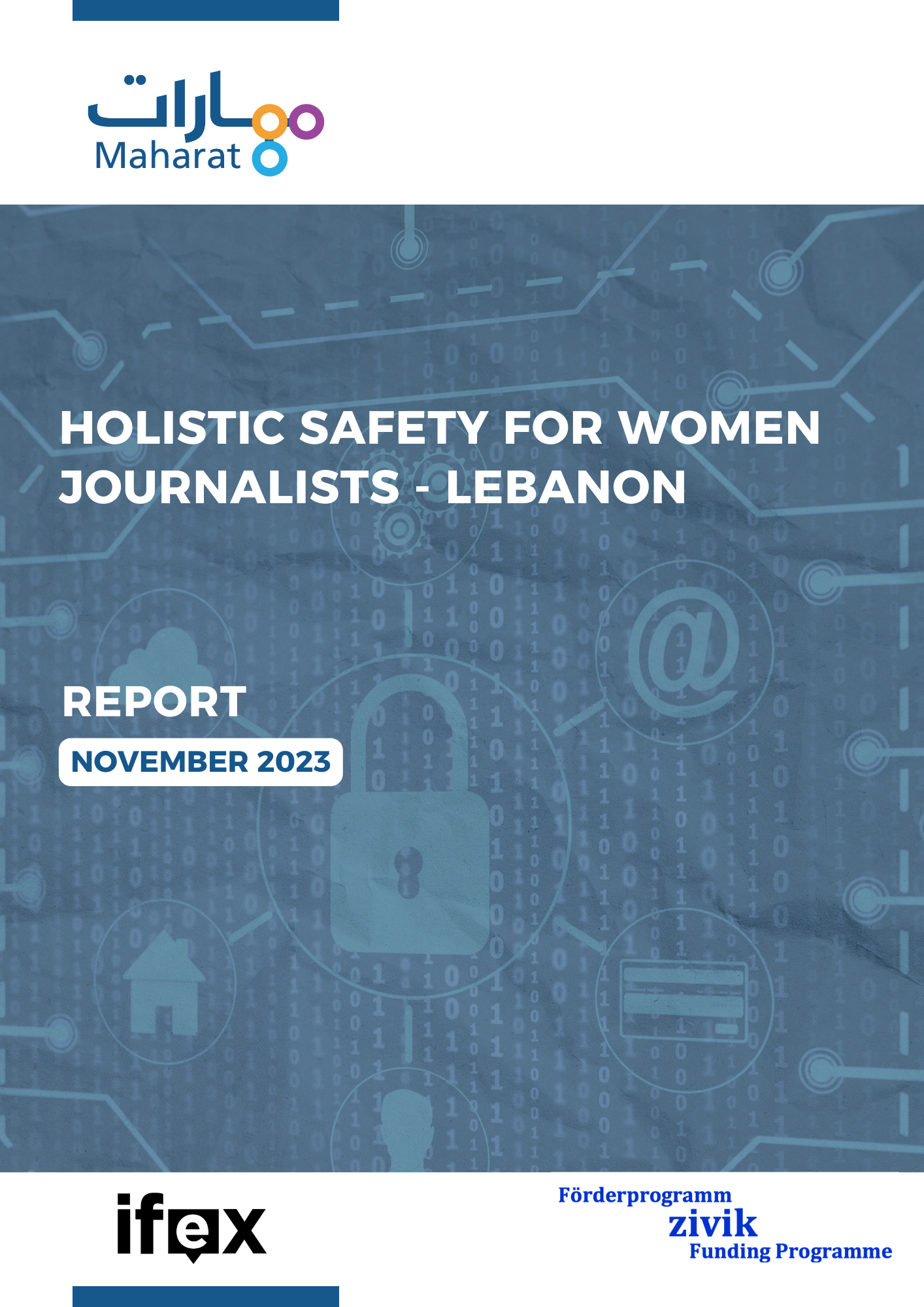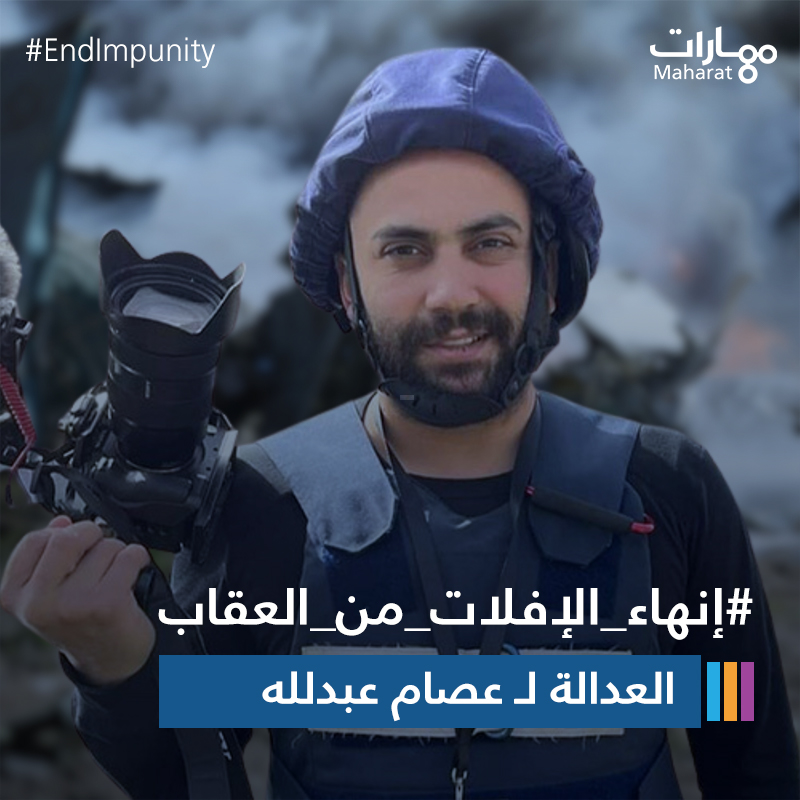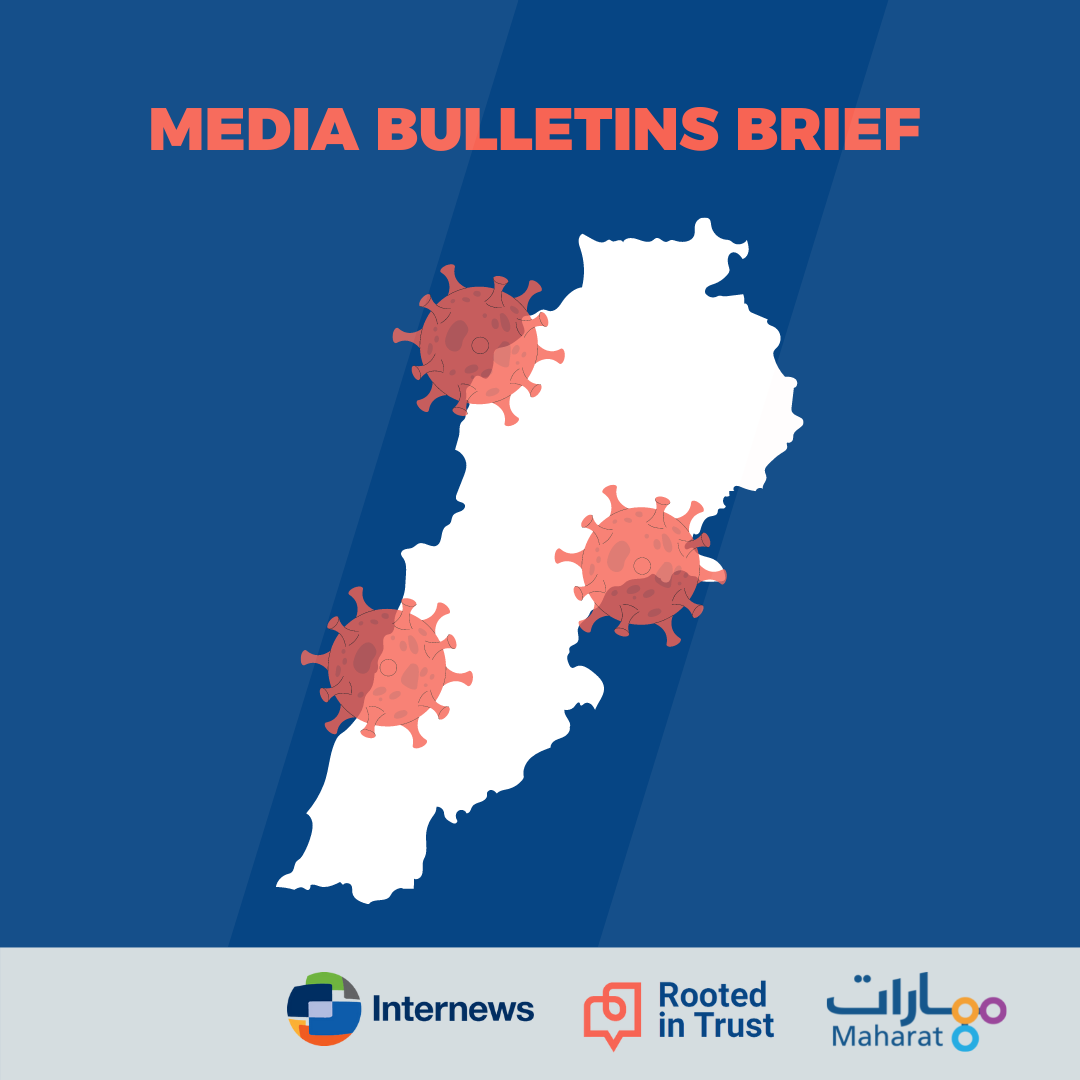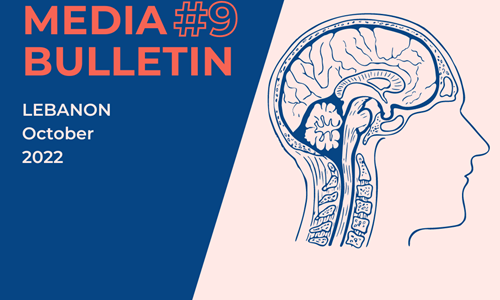
Holistic Safety for Women Journalists - Lebanon
Journalists in Lebanon face a plethora of challenges, in addition to the overarching devastating economic crisis the entire country is facing. The political discourse in the highly polarized country created a hostile environment for the press, as well as for representatives of civil society who advocate for real change and reforms.
For women journalists in Lebanon – as globally - the situation is even more difficult. Online hate campaigns aimed at tarnishing women’s reputation often drive them to withdraw from the profession or at the minimum cause them to be less outspoken and to not tackle sensitive issues.
To enable women journalists in Lebanon to produce evidence-based journalism and reliable independent content, we need to prevent and respond to the silencing and exclusion of women’s voices in public debate in increasingly hostile contexts.
This study delves into the challenges faced by women journalists with regard to holistic safety as only journalists that feel safe and protected can dare to report on sensitive issues, investigate the hidden structures of power and hold those in power to account.
Exploring Lebanon's social, political, and legal context, this study highlights that Lebanon’s media, while being pluralistic, is also shaped by the political and religious affiliations of different confessional groups. Furthermore, despite the fact that freedom of expression is a constitutional right, Lebanese reporters have to contend with a number of limitations.
It also sheds light on the broken promises of empowerment through online spaces. Instead of the promised “safe haven” for women to connect and express themselves, the online space has become an abyss of threats of sexual violence and character assassination.
Furthermore, the study underlines that women journalists often face unique threats, recognizing that the attitudes and societal values contributing to this issue in Lebanon, as well as in other Arab states, are deeply entrenched within the region's patriarchal systems and establishments.
Another key concern addressed in the study is the underrepresentation of women in media leadership roles which explains why women journalists’ security is not high on the agenda of most media outlets. Indeed, this underrepresentation limits their role in the shaping of policies that could promote gender equality.
It also highlights that social media platforms contributed to the proliferation of online hate against them by not doing enough to curb gendered attacks and hate speech, while emphasizing that the combination of gendered disinformation and online abuse creates a toxic environment for women who seek to speak up and to make their voices heard.
The study is complemented by the results of a survey conducted by Maharat Foundation with 40 women journalists to assess the overall risk awareness and preparedness to mitigate digital, physical, and psycho-social risks related to their work as a journalist in Lebanon. Those results demonstrate that a staggering 70 percent of respondents confirmed that there are situations where they don’t feel safe as women. Furthermore, 36 out of 40 women say they do not receive specific security briefings ahead of assignments or regarding work-related risks in general. Moreover, a large majority of respondents (70 percent) wish for more measures to be put in place to improve their ability to mitigate risks and to protect themselves.
The report concludes with a set of recommendations aiming at enhancing journalists’ holistic safety and creating a more supportive environment for women journalists in Lebanon.
Check the report here:





